
- Remove tax-free equity from your property
- It is not necessary to make regular monthly payments
- Help your family with the money you release
- Continue to stay in your home for as long as you like
How much money can I borrow?
You can release 65% of your property’s value. For example, if your house is worth £240000, you can release £156000.

Recently completed mortgage, equity release and lifetime mortgage cases

Sandra from Manchester
I got an equity release to give my daughter money to buy a house. Without the money I borrowed, her buying a home would have been impossible.
Non-Standard Property Home Index

William from London
My lawyer told me my inheritance tax bill would be around £250,000. I got a lifetime mortgage to give money to my son and daughter so they could buy bigger homes, and we bought a house in the south of France for us all to use as a holiday home.

Ms G from Dover
I divorced my husband, who was a violent alcoholic. I feared losing my home as I sometimes looked after my daughter’s children. Equity release enabled me to pay off my ex and stay secure in my house.

Mrs V from Hastings
I had spent my life running up credit cards and loans, then getting interest-only mortgages to pay off the debt. I reached retirement age and still owed the bank £160,000. The term was about to expire, and I could not afford the payments on my pension anyway. I got £180,000 equity release, and now I am more comfortable with no monthly repayments. I spent £20,000 on a new bathroom and kitchen. I now know I can stay at home.

Mr Smith from Kendal
My financial advisor told me I should get equity release and gift money to my five children now as it would save a massive amount of inheritance tax.

Mrs G from Leeds
My daughter is a single mother, and I got a £120,000 lifetime mortgage to buy her a flat outright as she has had a succession of poorly maintained rental flats not suitable for her child.

Mrs Daly from Glasgow
My daughter lives in the States and does not have health insurance. My £30,000 lifetime mortgage paid the medical bills for her son’s birth and a year’s rent in advance for a new flat for the baby.

David P
With my power of attorney, I got an equity release on my father’s house to pay for disability provisions, including a lift and a new kitchen.


Equity Release Calculator Under 55
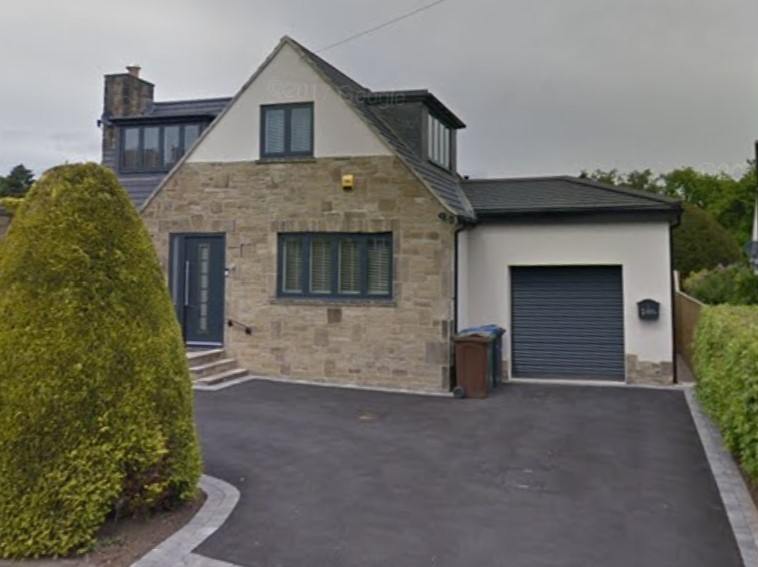
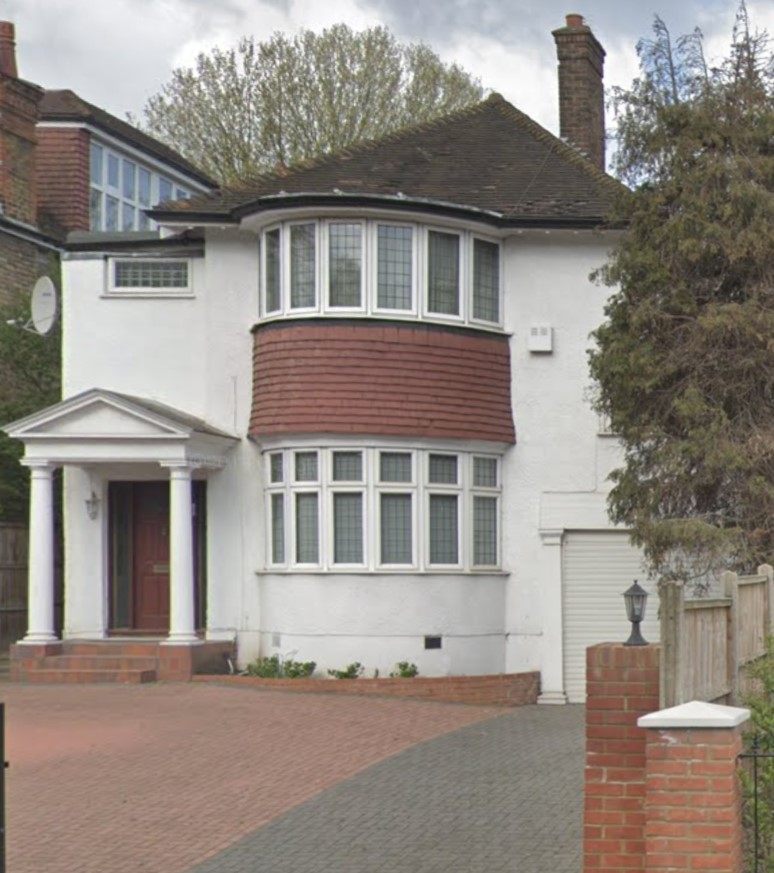
- Aviva Lifetime Mortgages for Pensioners
- TSB Equity Release
- More to Life Capital Choice Plus Plan
- Royal Bank of Scotland Lifetime Mortgage
- Hodge Lifetime Flexible Drawdown Plan
- Liverpool Victoria LV= Flexible Lifetime Mortgage
- More to Life Flexi Choice Drawdown Lite Plan
- Stonehaven Interest Only Lifetime Mortgage
- Lloyds Bank Equity Release Schemes
- Royal Bank of Scotland Lifetime Mortgage
- Liverpool Victoria LV Equity Release
- NatWest Equity Release Schemes
- Just Retirement Equity Release Schemes
- L&G Legal & General Flexible Max Plus
- Royal Bank of Scotland Lifetime Mortgage
- More 2 Life Tailored Choice Plan

Appealing retirement mortgage products are TSB interest-only lifetime mortgages, Barclays Bank pensioner mortgages over 70, NatWest retirement mortgages, Legal and General later life interest-only mortgages over 60, and Nationwide Building Society pensioner mortgages over 70.
Some of the most popular loan to values of TSB retirement interest only mortgages over 60, mortgages for over 50 year olds, Halifax over 60 lifetime mortgages no fees, L&G mortgages for people 60 plus, Royal Bank of Scotland interest only mortgages for over 60 near London and Nationwide Building Society interest only mortgages for over 65 year olds are 50%, 60% and 70%.

Does Buckinghamshire Building Society have good reviews for equity release?
Yes, Buckinghamshire Building Society reviews are superb for equity release.
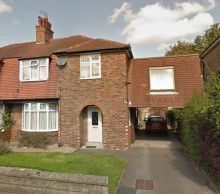
Popular loan-to-value ratios of Liverpool Victoria later life mortgages for over 70s, More to Life interest only mortgages for over 65 year olds, OneFamily help to buy for over 60s, YBS interest only lifetime mortgages for people over 60, Metro Bank interest only mortgages for over 60s and SunLife over 60 lifetime mortgages no fees are 45%, 60% and 70%.

Difficult-to-finance home types include properties currently undergoing substantial alterations, extensions or repairs, entirely tenanted properties, leasehold properties where the lease length is currently unacceptable, properties with unregistered titles subject to these being registered as part of the legal process and properties owned under any form of shared equity scheme.
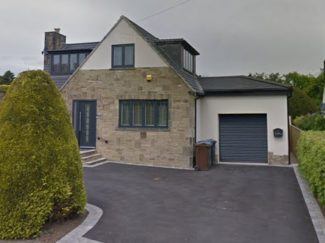
Popular loan to values of Aviva equity release schemes for over 55’s, Shepherds Friendly retirement mortgages over 70, Churchill lifetime mortgages for over 60s, Coventry Building Society retirement mortgages over 65, Newcastle Building Society mortgages over 70s and Progressive Building Society retirement mortgages over 60 are 50%, 60% and 70%.
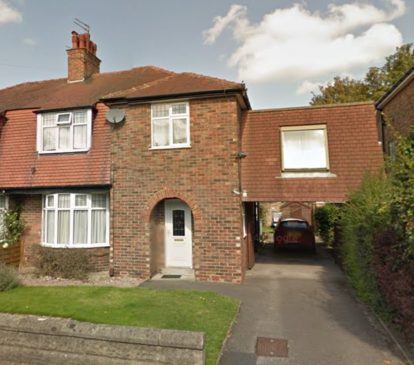
The 1st and 2nd charge lender will want to know if the property is a semi-detached freehold house or a Leasehold flat with a share of freehold and if the resident is an owner-occupier.
What are the current Buckinghamshire Building Society rates for equity release?
Buckinghamshire Building Society interest rates for equity release are 2.3% APRC.
What percentage can be released?
The more elderly you are and the more serious your illnesses you are the more money you can release.
Areas where Lifetime Mortgages are popular
- Corringham
- Ashington
- Heathfield
- Somerton
- Boroughbridge
- Woburn
- West Bromwich
- Northfleet
- Hatherleigh
- Carterton
- Loddon
- Lynton & Lynmouth
- Callington
- Helmsley
- Wath-upon-Dearne
- Southborough
- Ludlow
- Folkestone
Hard-to-finance home variants include pre-fabricated reinforced concrete (PRC), properties with pre-1945 asbestos or similar composition roof tiles, steel frame/clad properties built before 1990, coach houses, i.e., freehold properties with garages beneath, and privately developed flats in blocks of three or four storeys without a lift.
Does Buckinghamshire Building Society do Equity Release?
Yes, Buckinghamshire Building Society Equity Release is 5.13% APRC.
Downsides of Home Reversion Schemes
A monthly payment lifetime mortgage can reduce the value of your estate. Home reversion plans may impact the ability to claim entitlements. You may need to pay a legal fee and some products expose you to changes in interest rates.
How much is it common to release from a home
- 60% monthly payment lifetime mortgage Maximum cover Equity Release
- 40% loan to value lifetime mortgage with flexible drawdown cash release Stonehaven
- 25% loan to value monthly payment equity release Stafford Railway Building Society
- 45% loan to value interest-only lifetime mortgages West One
- 25% LTV monthly payment lifetime mortgage Bank of China UK
Providers for Equity Release
- More to life
- Stonehaven Mortgage
- Aviva
Challenging to finance property variants can include properties with land in addition to the domestic grounds up to a maximum property size of five acres, where the land is for normal domestic use, properties with flying or creeping freehold which comprises 15% or less of the total floor area, properties with more than one annexe or self-contained part of the property, properties where there is a self-contained part of the property or annexe, i.e. basement flat etc and properties which have been built on a previously contaminated land are acceptable provided the result of an environmental search determines the land to be clear of contamination.
Does Buckinghamshire Building Society do Pensioner Mortgages?
Yes, Buckinghamshire Building Society Pensioner Mortgages are 1.92% APR.
It’s very common to encounter people looking for monthly payment equity releases, lump sum lifetime mortgages, or home reversion schemes. However, Just Retirement, like LV Liverpool Victoria, is keen to see paperwork showing your circumstances in the form of investment statements.
- Santander Over 50 Mortgage
- Interest Rates On Equity Release
- Coventry Building Society Lifetime Mortgage
- Gloucester Building Society Over 75 Mortgage
- Liverpool Victoria Lifetime Mortgage Interest Rates
- Harpenden Building Society Over 70 Mortgage
- Self-Cert Mortgages Europe
Lifetime Mortgage Interest Rates Over 60, Equity Release Rates Over 70, and The Complexities of Leaseholds
The UK property market is rich in nuances and intricacies. As many homeowners approach their later years, the topics of lifetime mortgage interest rates for those over 60 and equity release rates for those over 70 become particularly pertinent. But one aspect of property ownership that intertwines with these financial avenues is the concept of leaseholds – and specifically, the potential pitfalls of short leaseholds.
Peeling Back the Veil on Lifetime Mortgages and Equity Release
Lifetime Mortgage Rates for Over 60s
For homeowners who have crossed the 60-year threshold, the equity in their property can serve as a substantial financial asset. Lifetime mortgages, by definition, allow these homeowners to unlock this equity, whether they own a leasehold flat or a freehold house.
Equity Release Rates for Those Over 70
For those over 70, there’s an increasing curiosity surrounding equity release schemes. These mechanisms provide ways to tap into a property’s equity without selling it. However, the terms and rates can vary for leasehold property owners, particularly those with a short lease.
Navigating the Labyrinth of Leaseholds in the UK
The Leasehold Basics: Long and Short Leases
To grasp the potential complexities of obtaining a mortgage or releasing equity from a leasehold property, it’s essential to understand the fundamental leasehold terminology:
- Long Lease: A term often used to describe lease agreements that span many decades, often 99 years or more. A property with a long lease is usually more straightforward to secure a mortgage against.
- Short Lease: The term “short lease” is slightly ambiguous and can vary in exact definition between lenders and experts. Generally, a short leasehold denotes a lease with a term less than 80 years remaining. Properties with short leases can be problematic when securing financing, and many lenders might deem them unsuitable for standard mortgages, hence the term mortgage short lease.
Pitfalls of Short Leaseholds
Buying a property with a short lease can present several challenges:
- Mortgage Difficulties: Many lenders are hesitant about mortgage for short lease properties. The reason? As the lease term decreases, the property’s value can also diminish. This presents an increased risk for lenders.
- Decreased Property Value: Properties with short leases can be considerably devalued. This can impact homeowners looking to sell or leverage their property’s equity.
- Lease Extensions: Extending a short lease can be expensive. Often, homeowners need to pay a premium to extend, and the cost can exponentially rise as the lease term dwindles.
- Potential for Ground Rent Increases: Some leasehold agreements have clauses that can significantly increase ground rent over time, further complicating the financial aspect of owning the property.
The Challenges with Short Lease Mortgages
Owning a leasehold property with a diminishing lease can lead to difficulties in securing a mortgage. This often pushes individuals to seek specific short lease mortgages or alternative financial avenues.
- Limited Lender Options: Many mainstream lenders might avoid offering a mortgage on short lease properties. This limitation can mean higher interest rates or less favourable terms for potential borrowers.
- Equity Release Complications: For homeowners over 70, the complexities of a short lease can impact the available equity release rates. The decreased property value and the potential future costs of lease extensions can make equity release less viable.
Understanding Leasehold Expiry
A looming question for many leasehold property owners is, “What happens when a leasehold expires UK?”. This pressing query carries with it a bevy of concerns:
The End of Lease Term Dilemma
When a leasehold expires, the property reverts to the freeholder. In the UK, if the lease runs out and isn’t extended, homeowners might find themselves in a predicament where they’re essentially renting the property from the freeholder, often at a market rent.
Extending Your Lease
While extending a lease is possible, doing so can be costly, significantly as the lease term diminishes. Property owners often ask, “how long should a leasehold be?”. The general advice is to start the extension process when the lease has around 80-85 years remaining. This is because, below the 80-year mark, the cost of extension can rise significantly.
Leasehold Reform in the UK
There’s a growing movement pushing for changes in the UK’s leasehold system. This movement aims to make extending leases or buying out freeholds more transparent, affordable, and straightforward for homeowners.
The Leasehold Property Journey
Buying a Leasehold Property: Factors to Consider
Whether considering buying a leasehold flat or pondering “should I buy a flat or house?”, potential homeowners should arm themselves with knowledge:
- Lease Length: Always check the remaining lease term. Ask the question, “how long should a lease be when buying a flat?”. Generally, a lease term of 90 years or more is deemed acceptable.
- Ground Rent and Service Charges: It is crucial to understand the ongoing costs associated with a leasehold property. Ground rent and service charges can vary and might have clauses that allow for significant increases.
- Potential for Lease Extension: Consider the cost and potential for extending the lease.
Selling a Leasehold Property
For those looking to sell, the length of the remaining lease can impact the property’s marketability. Selling a flat with a short lease might be challenging, primarily if the lease term is below the 80-year threshold.
Decisions: Flat or House, Leasehold or Freehold?
The decision to buy a leasehold property, particularly a flat, hinges on various factors. Potential buyers often grapple with questions like “Is it worth buying a flat?” or “Should I buy a flat or a house?”
While flats, especially in urban areas like London, offer the allure of city living, the complexities of leaseholds can’t be ignored. It’s essential to weigh the pros and cons, understand the responsibilities and potential challenges, and make an informed decision.
In the vast and varied landscape of the UK property market, the interplay between leaseholds, lifetime mortgages, and equity release rates crafts a narrative that every homeowner and potential buyer should be attuned to. Understanding this realm’s intricacies, challenges, and opportunities can pave the way for informed financial and property decisions in the golden years of life.
- Crown Equity Release Providers
- Rates Equity Release Review
- Nationwide Equity Release From House
- Yorkshire Building Society Homes
- Equity Release Belfast Age
- Natwest Lifetime Mortgage Calculator
- London Equity Release Providers
- BISF Equity Release Retirement
- Flat Roof House Insurance
Understanding Lifetime Mortgages, Equity Release, and The Dynamics of Leaseholds
Navigating the UK property market requires a deep understanding of several factors. Understanding leaseholds becomes crucial, especially when considering later-life financial planning tools like lifetime mortgage interest rates for individuals over 60 or equity release rates for those over 70. With a growing number of leasehold flats in the UK, the complexity of dealing with them and their implications on mortgages and equity release is vital.
Delving into Lifetime Mortgages for Over 60s and Equity Release for Over 70s
Lifetime Mortgage Rates for Over 60s
Upon crossing the 60-year benchmark, many homeowners view their property differently. For many, the equity locked in their homes, whether leasehold flats or otherwise, can be a cushion for later life. Lifetime mortgages provide a pathway to unlock this equity without selling the property.
Equity Release Rates for Over 70s
As homeowners advance into their 70s, the lure of equity release schemes becomes increasingly attractive. These mechanisms, tailored to senior homeowners, allow individuals to tap into their property’s value, providing an influx of cash for various purposes. However, the intricacies of a leasehold, especially its length or lease term, can influence these rates.
Leaseholds in the UK: A Comprehensive Guide
Understanding Leaseholds: What Are They?
In essence, when you own a property under a leasehold, you own the property for the term of the lease but not the land it stands on. This concept can be confusing for many, especially when comparing the idea of lease vs buy. This lease property arrangement is particularly prevalent in flats, answering the often-asked question, “are all flats leasehold?” Indeed, most flats in the UK are leasehold, whereas houses are usually freehold, though there are exceptions.
Lease Length: What’s Adequate?
The lease term or lease length is crucial when considering a leasehold property, mainly a flats leasehold. Potential buyers often ask, “What is a good leasehold length?” Typically, a lease term of over 90 years is deemed suitable for purchase. As the lease shortens, complications can arise, especially when seeking financing options or considering selling.
Challenges with Short Leaseholds
Properties with a short lease can be difficult to mortgage due to lenders’ perceived risks. This leads to the rising query of “How to buy a leasehold with a shorter term?” Understanding the lease term’s implications is paramount for those eyeing cheap flats to buy in London or wishing to buy a flat in London.
Extending the Lease Term
For many leasehold properties, mainly when the lease is shortening, an option exists to extend the lease. This process, known as purchasing a lease, involves negotiating with the freeholder. Understandably, it can be a costly affair, but it is often necessary to maintain the property’s value and ease of sale.
Journeying through Leasehold Properties in London and Beyond
London’s Attraction: Buying Flats in the Capital
London remains a hotspot for property buyers. From seasoned investors to first-time homeowners, the allure of buying a flat in London is undeniable. Whether you’re scouting for the cheapest flat to buy in London or a luxurious pad, understanding the lease terms is fundamental.
Leaseholds Across the UK: Not Just a London Phenomenon
While leasehold flats are prevalent in London, they’re found across the UK. Whether you’re keen on buying a flat in the UK, outside the capital, or exploring options to buy a flat in UK cities like Manchester, Birmingham, or Edinburgh, the dynamics of leaseholds remain consistent.
Making the Choice: To Lease or Buy, Flat or House?
The Lease vs. buy Conundrum
For many potential homeowners, the decision between lease and buy is pivotal. Leasing or renting to buy flats offers flexibility that outright purchasing might not provide. However, buying, whether it’s a flat in London or elsewhere, offers the sense of permanent ownership and potential capital appreciation.
Flat or House: What’s the Better Buy?
Another perennial question plaguing potential homeowners is whether to buy a flat or house. The answer isn’t straightforward. While flats, especially in cities, offer the convenience of urban living, houses provide space and often have fewer leasehold complications.
Unpacking the Leasehold Lexicon
What Is a Lease? Understanding Its Meaning
At its core, a lease represents an agreement between the leaseholder and the freeholder. When you buy a flat, especially in the UK, you often enter into a lease agreement where you own the property for a specified period but not the land it’s on. So, when people ask, “what does a lease mean?” or “what is a lease?”, it’s this contractual arrangement they’re referring to.
Unravelling Leasehold Jargon
Several terms often surface in leasehold discussions:
- Leasehold Flat Meaning: A flat owned under a lease agreement for a set term, not perpetually.
- Lease Property Near Me: Often a search query for those seeking leasehold properties in their vicinity.
- Property for Lease: Refers to properties available under a lease agreement.
- What Is a Lease Hold: A slightly colloquial way of asking about leaseholds.
The UK Property Dance: Making Informed Choices
Knowledge is power, whether it’s understanding the intricacies of lifetime mortgages, equity release, or the multifaceted world of leaseholds. For those considering stepping onto or moving up the property ladder, from buying a flat in the UK to grappling with lease or buy decisions, understanding these elements’ nuances can be the difference between making a sound investment and facing unforeseen challenges.
As the UK property landscape evolves, with
Staying informed is more important than ever for new developments, regulations, and market dynamics. While the allure of the UK’s capital, with prospects like buying a flat in London, remains steady, regional cities also offer many opportunities. Cities like Manchester, Leeds, and Bristol have seen significant growth, with many considering them prime locations for property investment.
The Complexities of Leaseholds in Depth
Why Are Flats Primarily Leasehold?
The tradition of flats leasehold in the UK has historic roots. Unlike houses, flats are typically built on shared land, with common spaces and responsibilities for maintenance. Because of this shared structure, it was deemed more straightforward for the land to be owned by a single entity (the freeholder) while individual flats were sold as leaseholds. When potential buyers ask, “Why are flats leasehold?” the answer lies in the shared and communal nature of flat complexes.
Potential Pitfalls of Short Leaseholds
Properties with shorter lease lengths can lead to various challenges:
- Mortgage Lease Length: Many mortgage providers are wary of lending against properties with a short lease. This restricts the pool of potential buyers and can reduce the property’s market value.
- Decreased Property Value: The shorter the lease, the less valuable the property is. A crucial question is, “How much does a short lease devalue a property?” While there’s no one-size-fits-all answer, significant depreciation occurs as the lease length dwindles.
- Cost of Lease Extension: As mentioned earlier, while it’s possible to extend a lease, this often comes at a steep price—not just monetary but also in terms of time and potential legal battles.
Buying a Flat with a Short Lease: Risks and Rewards
While buying a property with a short lease might seem daunting, it could present an opportunity for some. Such properties can often be bought at a significantly reduced price, and buyers with the knowledge and resources to navigate the lease extension process can reap potential rewards. However, it’s crucial to proceed with caution and arm oneself with proper legal advice.
Making Sense of Leasehold Fees and Charges
Beyond the property’s purchase price, leasehold flats come with a slew of additional fees:
- Ground Rent: An annual fee paid to the freeholder.
- Service Charges: Payments towards the maintenance of communal areas and shared services.
- Lease Extension Fees: If looking to extend the lease term.
- Permission Fees: Fees paid to the freeholder if you wish to change the property.
It’s essential to know these charges when considering the total cost of buying a leasehold flat.
Decisions, Decisions: House or Flat? Lease or Buy?
The property journey is fraught with decisions. While urban centres, especially London, have an undeniable charm, there’s much to be said about the tranquil suburbs or the burgeoning opportunities in regional cities. The allure of a London flat buy remains, but the market is broad and varied.
For many, the flat vs house debate boils down to personal preferences. Flats offer modern conveniences, are often closer to city centres, and can be perfect for singles or young couples. On the other hand, houses offer more space, privacy, and freedom from leasehold complexities.
Similarly, the lease vs buy conundrum is a matter of financial positioning and long-term goals. While leasing provides flexibility, buying is an investment in the future.
In the Vast Landscape of UK Property
In the grand scheme of the UK property market, understanding the intricacies of lifetime mortgages and equity release, coupled with the complexities of leaseholds, can seem overwhelming. However, these can be navigated successfully with proper research, expert advice, and clear understanding.
For those with eyes on the property market, whether considering buying a flat in the UK, pondering over lease or buy scenarios, or exploring the realms of lifetime mortgages and equity releases, the journey is as exciting as it is intricate. As with all significant decisions, knowledge, due diligence, and patience are the keys to unlocking a successful property venture in the UK.
- Natwest Retirement Mortgage Interest Rate
- Bath Building Society Equity Release UK
- Best Mortgages For Over 50s Pensioner Mortgage House
- Flat above shop Lifetime Interest Only Mortgage UK
- Mortgages For Over 75S
- Barclays Retirement Interest Only Mortgage Interest Only Rates
- Bisf Property
- Age Partnership Age
- Barnsley Building Society Equity Release House
- Mansfield Building Society Over 50 Mortgage
- Darlington Building Society Interest Rates
- Mortgage For Pensioners
- Best Mortgages For Over 50s Retirement Mortgage Providers
- Bank Of Scotland Equity Release Reviews
- Just Retirement Over 75 Mortgage
- Marsden Building Society Pensioner Mortgage
- Rbs Retirement Mortgage No Credit Check
- Penrith Building Society Pensioner Mortgage
- Loughborough Building Society Equity Release Home
- Lifetime Mortgage Property With Land
- Mortgage For Over 55
- Equity Release Schemes
- National Counties Family Building Society Retirement Mortgage
- Power Lines Equity Release Schemes
- High Rise Flat Over 75 Mortgage
- Tipton & Coseley
- Nationwide Pensioner Mortgage Providers
- How To Pay Off Your Mortgage
- Nationwide Mortgages For Over 70S
- Mortgages For Over 70’S
- Equity Release With Bad Credit
- Swansea Building Society No Fees
Does Buckinghamshire Building Society do Retirement Mortgages?
Yes, Buckinghamshire Building Society Retirement Mortgages are 5.9% MER.
Challenging to mortgage property variants include rent charges properties with a high estate rent charge, leasehold properties with a short lease, typically less than 70 years, or a defective lease, properties where there are boundary disputes or where planning applications have not been applied for correctly, asbestos construction and missing planning permission or building regulations approval.
Pure Retirement Drawdown Lifetime Mortgages
Does Buckinghamshire Building Society offer Equity Release Under 55?
Yes, Buckinghamshire Building Society Equity Release Under 55 is 2.25% APR.
Equity release is common among small business owners like below
- Wholesale of perfume and cosmetics Hartland
- Manufacture of bricks, tiles and construction products, in baked clay Coleford
- Renting and leasing of construction and civil engineering machinery and equipment in Cheltenham
- Support activities to performing arts Mansfield
- Sawmilling and planing of wood Wath-upon-Dearne
Some lenders are willing to lend against property titles with a short lease.
Does Buckinghamshire Building Society do Lifetime Mortgages?
Yes, Buckinghamshire Building Society does lifetime mortgages at 2.12% APR. Buckinghamshire Building Society Lifetime Mortgages can have a loan to value of 55%.
